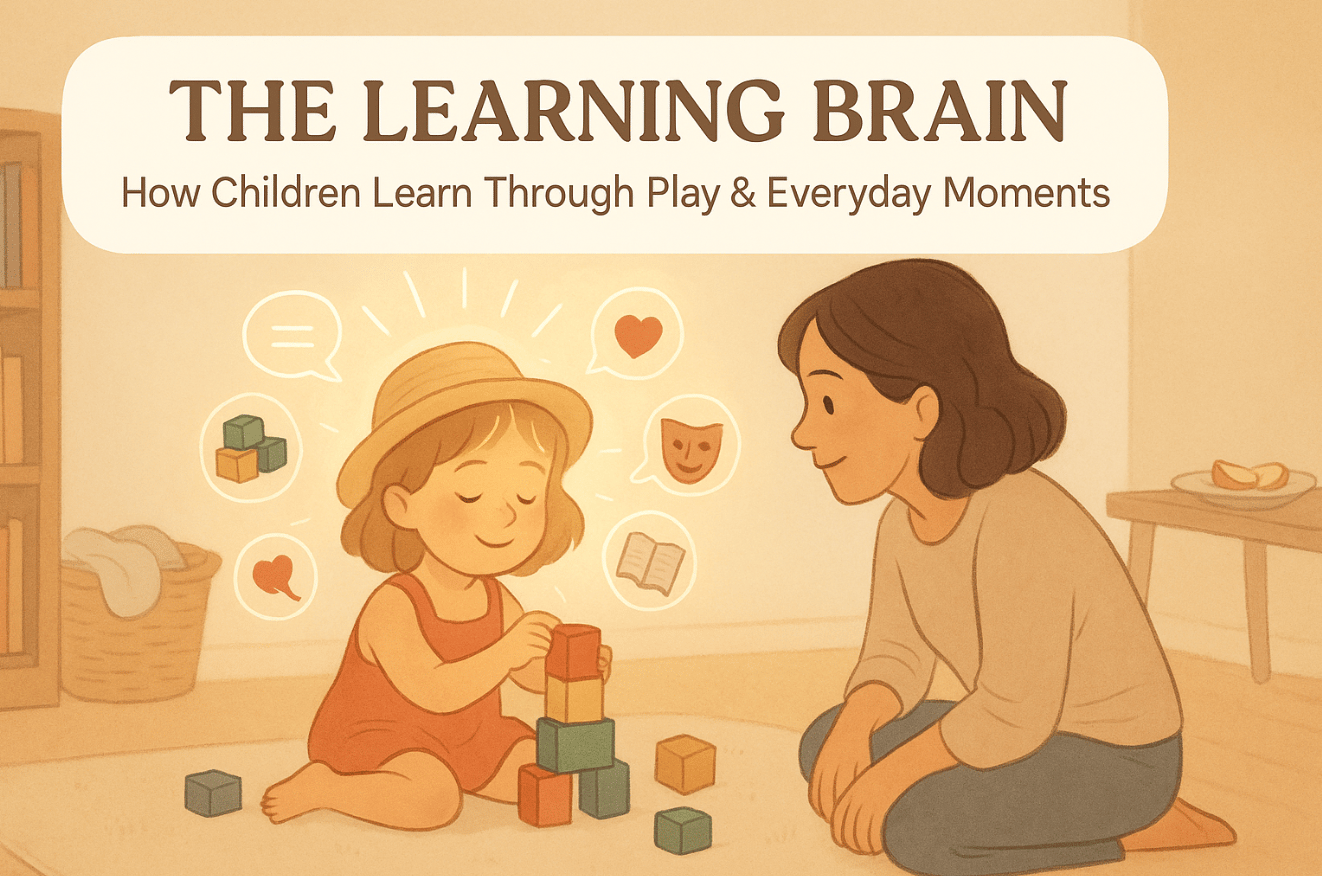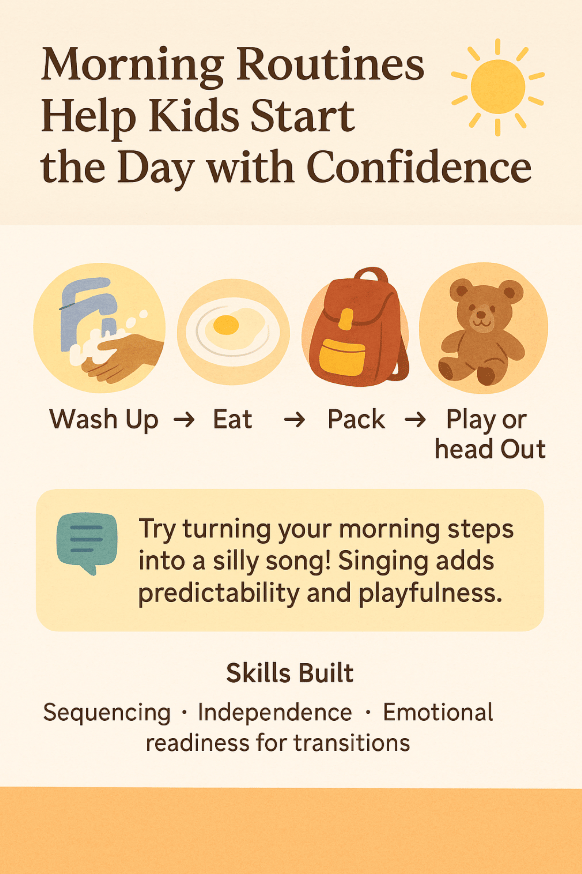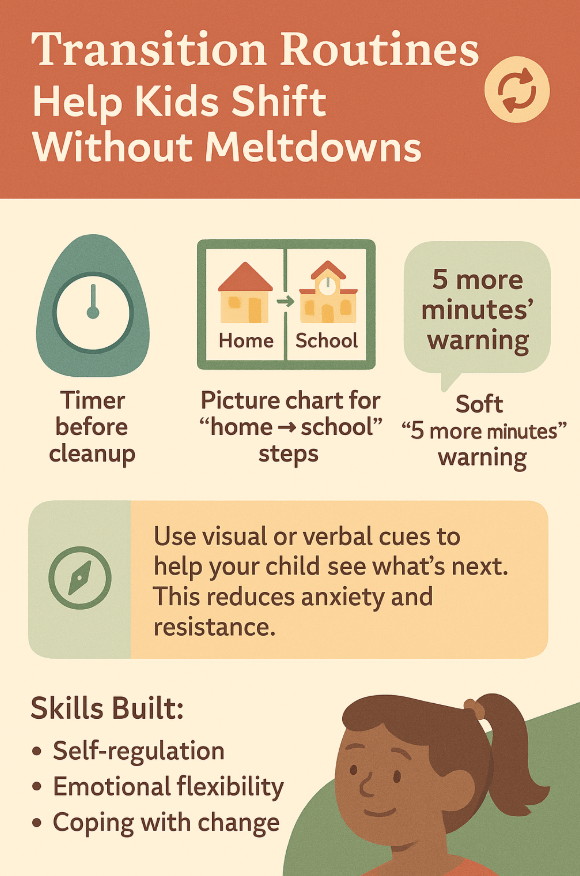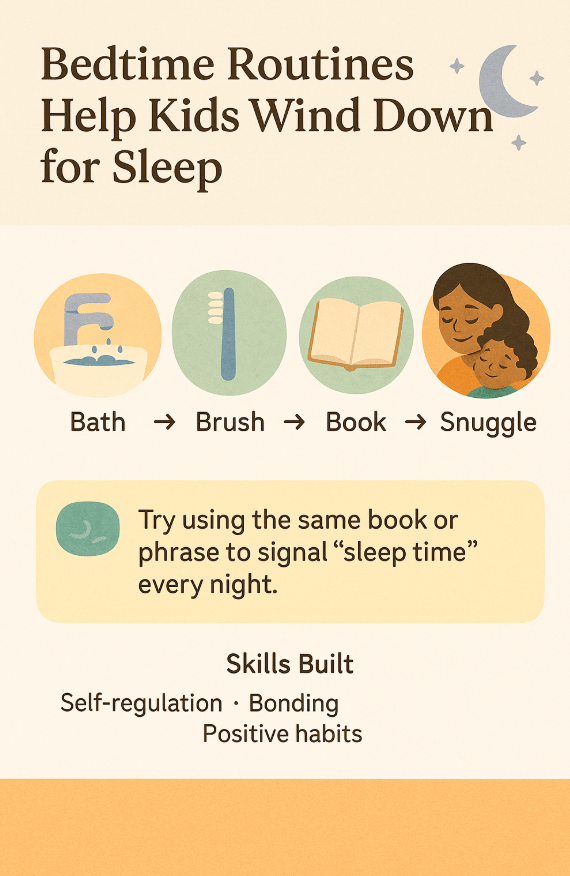Looking for unbiased, fact-based news? Join 1440 today.
Join over 4 million Americans who start their day with 1440 – your daily digest for unbiased, fact-centric news. From politics to sports, we cover it all by analyzing over 100 sources. Our concise, 5-minute read lands in your inbox each morning at no cost. Experience news without the noise; let 1440 help you make up your own mind. Sign up now and invite your friends and family to be part of the informed.
💛 A Little Click Goes a Long Way
We carefully choose the ads in this newsletter to make sure they’re family-friendly and relevant. When you click on them, you’re helping keep Playful Parent free and thriving—so thank you for supporting us with just a tap or two!

🧠 The Power of Predictable Routines
Why structure helps kids feel safe, seen, and secure
What Routines Really Do for Young Children
In parenting spaces, the word “routine” can sometimes feel boring—or even rigid. But in early childhood, routines aren’t about strict schedules or clock-watching. They’re about rhythm, trust, and the kind of safety that lets a child’s brain focus on learning, play, and emotional growth.
In fact, predictable routines are one of the most powerful ways to support your child’s development.
Why Predictability Matters
Imagine being a toddler where almost everything is new, fast, or outside of your control. You don’t get to decide when to eat, what to wear, where to go, or how long you stay there. Your brain is still learning to manage emotions, control impulses, and express needs with words.
Now imagine knowing exactly what happens after lunch every day. Or feeling comforted by the same bedtime routine every night.
That small predictability becomes a lifeline in a world of big unknowns.
Routines:
🔄 Provide a sense of order and stability
🧘 Support emotional regulation (by making transitions smoother)
🧠 Strengthen memory and sequencing skills
💞 Deepen connection through shared rituals
Routines Build the Foundation for Learning
The early years are about building the brain from the bottom up—and that foundation relies on safety, consistency, and trust. When a child knows what to expect, they can relax into the moment. That relaxation opens the door to:
Focus and attention
Social-emotional learning
Cognitive flexibility
Cooperation and independence
You might not see it right away, but every time you sing the same song before brushing teeth, or use the same phrase when leaving the park (“Let’s wave goodbye!”), you are helping wire your child’s brain for learning and resilience.
Real Talk: Routines Can Feel Hard
Let’s be honest—sticking to routines as a parent can be exhausting, especially if you’re juggling work, multiple children, or unexpected life stressors. This isn’t about perfection. Routines don’t have to be rigid or look the same every day.
The power is in the predictability, not the precision.
Even something as simple as:
“After we put on pajamas, we always read two books and sing our song…”
…is enough to help your child’s body and brain know what comes next. And when they know what to expect, they feel safe.
Little Moments, Big Impact
Routines aren’t just tools for smoother mornings or calmer bedtimes (although they help with that too!). They’re invisible threads of connection—the rituals that tell your child:
“You can count on me.”
“Our life has rhythm.”
“You are safe in this family.”
So whether your routine is a post-school snack chat, a bedtime lullaby, or a silly clean-up song, know that you're doing something powerful. You’re helping your child regulate, relate, and grow.

Want more fact based evidence? Check out this interesting read!



🌿 Reflection:
Think about the small rituals woven into your days—the bedtime snuggles, the morning “I love you,” the way you hum while brushing their hair. These may feel ordinary, but to your child, they are the anchors of safety and love.
You don’t have to be perfectly consistent. You don’t need a color-coded chart.
You just need to show up in a way that says: “You can trust the rhythm of our days. I’m here. I’ve got you.”
That rhythm is the routine. And that presence?
That’s the magic.



